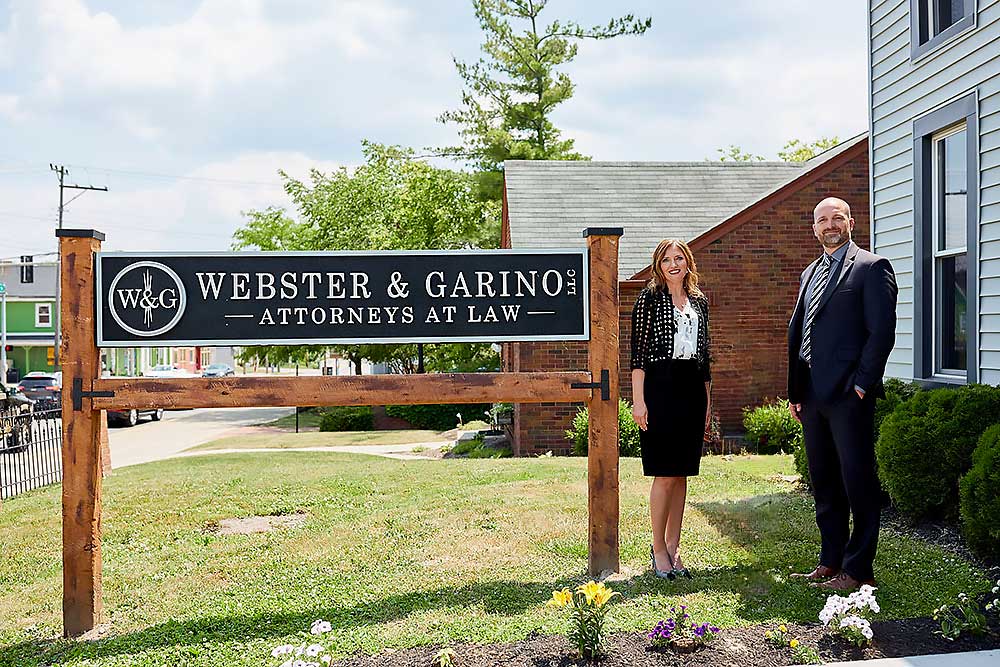Protecting Your Assets from Nursing Home Costs in Indiana

Table of Contents

Older adults and their families often worry that a long stay in a nursing home will drain savings. That concern is real, but you have options. With early planning, careful use of Indiana specific tools, and sound legal guidance, many families protect a home, preserve income for the healthy spouse, and qualify for care without losing everything.
Webster and Garino helps Indiana families create plans that respect both care needs and financial goals. This guide explains how Medicaid fits into long term care, the rules that surprise families, and strategies that protect assets in a crisis or with early planning. It is general information, not legal advice for your situation.
How Nursing Home Care Is Paid For in Indiana
What Medicare covers and what it does not
Medicare can pay for a short stretch of skilled nursing or rehab after a qualifying hospital stay. It does not pay for long custodial care. When needs continue, families rely on private funds, long term care insurance, Veterans benefits when available, and Indiana Medicaid once eligibility is met.
The role of Medicaid in long term care
Medicaid can pay for nursing facility care and, through waiver programs, for care at home or in assisted living. Eligibility involves strict income and asset rules, a review of recent financial history, and possible estate recovery after death. Planning is about meeting these rules in a lawful way that protects a spouse and preserves key assets while securing needed care.
Indiana is an income cap state
For nursing facility or comparable waiver services, Indiana uses a special monthly income level. If income is above that level, a Qualified Income Trust, often called a Miller Trust, can route income as the rules require so eligibility is possible. The trust must be drafted and administered correctly.

The Three Pillars of Medicaid Eligibility in Indiana
Medical need for a nursing facility level of care
Eligibility starts with a clinical decision that the person needs a nursing facility level of care or qualifies for a waiver that delivers similar support. The assessment looks at ability to carry out daily tasks, need for skilled services, and safety.
Income rules
If gross income is under the special level, the applicant may qualify if other requirements are met. If income is over the level, a Miller Trust can be used. It should be established before or with the application, opened at a bank, funded with the correct income sources, and used exactly as the rules require. Funds left at death are generally payable up to the amount the program paid for care.
Asset rules
Medicaid distinguishes between countable and exempt resources. Countable resources often include cash, bank accounts, investments, and real estate other than a primary residence. Exempt resources can include a primary residence while a spouse or qualifying dependent lives there, one vehicle used for transportation, household goods, and burial arrangements that meet state rules. Retirement accounts and life insurance with cash value receive case specific treatment. Ownership and title details can change outcomes.
The Five Year Lookback and Transfer Penalties
What the lookback means
When someone applies for nursing home Medicaid or a qualifying waiver, Indiana reviews financial records for the five years before the application to find transfers for less than fair market value. These include gifts, bargain sales, loan forgiveness, and adding another person to an account in a way that gives access to funds.
How penalties are calculated
If disqualifying transfers occurred, the state imposes a penalty period based on the dollar amount transferred below value. The amount is divided by a standard figure that reflects average care cost to determine how long Medicaid will not pay for long term care. The penalty is not a fine. It creates months when the applicant must pay privately. Timing is critical, since the penalty often starts only after the person is otherwise eligible and living in a facility.
Exceptions and hardship
Transfers between spouses are generally allowed. Certain transfers for the sole benefit of a disabled child are permitted. In some cases a transfer of the home can be allowed to a caregiver child who lived in the home and provided care that delayed placement, or to a sibling with an equity interest who lived in the home. Hardship waivers exist in limited cases and require strong proof.

Spousal Protections That Keep the Household Stable
When one spouse needs care and the other remains at home, spousal impoverishment rules protect the healthy spouse. These protections are not automatic and must be calculated, documented, and applied within the application.
Community Spouse Resource Allowance
The community spouse may keep a share of the couple’s non exempt resources. Indiana uses a minimum and a maximum that adjust from time to time. The correct allowance depends on the amount of countable resources on a specific assessment date and other details.
Income allocation for the spouse at home
Indiana protects a minimum monthly income for the spouse at home. If that spouse’s income is below the protected level, some of the nursing home spouse’s income can be allocated to bring them up to the minimum. This must be requested and supported with proof.
Planning for the home
The primary residence can be exempt while a spouse lives there. Even then, titling, tax issues, and possible estate recovery should be considered. Early trust planning or careful transfers can coordinate eligibility with inheritance goals while keeping the spouse secure.
Estate Recovery in Indiana
Medicaid must seek recovery from the estate of a person who received benefits after age fifty five or in certain other cases.
What the state may claim
The state may present a claim for the amount paid for care and related costs. Claims are usually presented after death through probate or through procedures that reach assets outside probate.
Probate and non probate assets
Transfer on death deeds, payable on death accounts, and joint ownership can bypass probate. In Indiana, many non probate transfers can still be within reach of estate recovery. Bypassing probate is not the same as avoiding a recovery claim. Titling should be coordinated with eligibility and recovery rules.
Options to address recovery
Exemptions, allowances, and hardship relief may limit or delay recovery. Early planning can sometimes place assets outside recovery when done correctly. After death, families can still respond with accurate calculations, proof of exempt items, and allowed defenses.

Asset Protection Strategies That Work in Indiana
The best plan balances eligibility, quality of life, and family goals. The right tools depend on timing, health, family structure, and asset mix. Often two or three tools are combined.
Early planning tools
- Medicaid asset protection trust
An irrevocable trust can be created while you are healthy. If assets are placed in the trust and five years pass before any application, trust assets are generally not counted for eligibility. Many families place a home or investments in the trust while keeping the right to live in the home. Trustees keep records, and distributions to the person who created the trust have limits. The trust can also avoid probate and provide a clear inheritance path. - Long term care partnership insurance
Partnership policies approved by the state can protect assets on a dollar for dollar basis up to benefits paid. These policies work best when purchased earlier and coordinated with a legal plan. - Title and beneficiary coordination
Transfer on death deeds and payable on death accounts can simplify inheritance, but do not by themselves avoid estate recovery. Early review aligns titles and designations with both eligibility and recovery rules.
Crisis planning tools when care is needed soon
- Qualified Income Trust, often called a Miller Trust
When income is over the special level, a Miller Trust can route income according to the rules so eligibility is possible. Any funds left at death are usually paid to the state up to the amount spent on care. - Spousal resource division and income shift
Correctly calculating and documenting the community spouse resource allowance and the income allocation can preserve savings and support the spouse at home. The process is technical and time sensitive. - Exempt asset conversions
Families can sometimes turn countable cash into exempt resources that improve life for the spouse at home, such as needed repairs, accessibility upgrades, a replacement vehicle, or prepaid burial arrangements. Documentation is essential. - Caregiver agreements with family
Paying a family member under a written agreement can be a lawful way to spend down while keeping care inside the family. The agreement should be signed before services begin, use fair market rates, and include detailed records. - Annuities or promissory notes that meet program standards
In some cases, immediate annuities or loans can convert a countable resource into an income stream for the spouse at home. The instruments must meet strict terms or they may be treated as transfers below value.
Choosing and combining tools
A common early plan places a home in a trust, coordinates titles on accounts, and uses a partnership policy to insure risk. A common crisis plan sets up a Miller Trust, calculates the spouse’s protected allowance, completes exempt purchases for the spouse at home, and submits a precise application with expected proofs.

Two Indiana Focused Scenarios
Scenario one: Married couple, urgent placement
A husband needs care within the month. Savings exceed the resource limit and his pension and Social Security push income above the special level. A lawyer creates a Miller Trust, documents the community spouse resource allowance, guides needed updates to the spouse’s home, and prepares the application with statements and titles organized. Result: eligibility, steady income for the spouse at home, and protection of a meaningful share of savings.
Scenario two: Single homeowner, early planning
A widow is healthy and wants to protect her home and a modest investment account in case care is needed later. She creates a Medicaid asset protection trust and places the home and investments in the trust. After five years, those assets are generally outside her countable resources. The trust also provides a clear path for inheritance.
Checklist for Your First Attorney Meeting
- Gather financial records
Bring recent bank statements, investment summaries, retirement account statements, life insurance statements that show cash values, and any trust or annuity documents. Include deeds, vehicle titles, and property tax bills. These allow a precise lookback review and reveal risks and opportunities. - List monthly income sources
Provide a list of Social Security, pensions, annuities, rental income, and other recurring payments. The attorney will compare totals to the special income level and decide whether a Miller Trust is needed. If married, include proof of the spouse’s income. - Document family support and caregiving
If a relative has been paying bills or providing care, bring notes or records that show tasks and payments. This can support a caregiver agreement for future services and explain past transfers. - Clarify your goals
Identify which assets matter most to protect, such as the home, a family farm, or funds for a disabled child. Share concerns about taxes, business ownership, and blended families so the plan reflects your values.
Common Missteps to Avoid
Gifting without advice
Gifts during the lookback window can create months of ineligibility. Even small recurring gifts can add up. Speak with counsel before moving money or changing house ownership.
Relying on probate avoidance alone
Transfer on death deeds and payable on death accounts can bypass probate, but many non probate transfers are still subject to estate recovery in Indiana. Coordinate title choices with eligibility and recovery rules. Speaking with a probate attorney in Indiana is a must.
Waiting too long
Preplanning gives more options and less stress, but even crisis planning can protect assets. If placement is urgent, stop informal transfers and work with counsel on a compliant plan.
Why Work With an Indiana Estate Planning Attorney
Rules in this area are technical and change over time. Indiana’s income cap and Miller Trust procedures, the five year lookback, spousal protections that adjust, and the reach of estate recovery across probate and non probate assets require precision. An attorney can evaluate your facts, explain options in plain language, draft needed documents, align titles and beneficiaries, and prepare a complete application that avoids delays.

How Webster and Garino Can Help
For clients who are planning ahead, we design asset protection trusts, review titles and beneficiary designations, and coordinate with financial advisors. For clients who need care soon, we set up Miller Trusts, calculate and document spousal allowances, convert countable resources into allowed exempt items, and prepare the application packet caseworkers expect. After a loved one passes, we respond to estate recovery with accurate numbers and the defenses the law allows. Call or contact us to schedule a confidential consultation.
FAQs
Indiana offers waiver programs that can provide care at home or in assisted living when clinical and financial rules are met. Many of the same eligibility concepts apply.
Yes. Any transfer below fair market value during the review window can trigger a penalty, and small gifts can add up. Get advice before gifting money or property.
Yes. Indiana applies spousal impoverishment protections that allow the healthy spouse to keep a share of resources and, when needed, receive income to reach a minimum monthly needs amount.
Not necessarily. Many applicants who exceed the special income level qualify by using a Miller Trust. The trust receives income and routes it according to the rules so eligibility can be approved.
Not by itself. A transfer on death deed can bypass probate, but many non probate transfers are still within reach of estate recovery. Coordinate eligibility and recovery rules to reduce risk.











